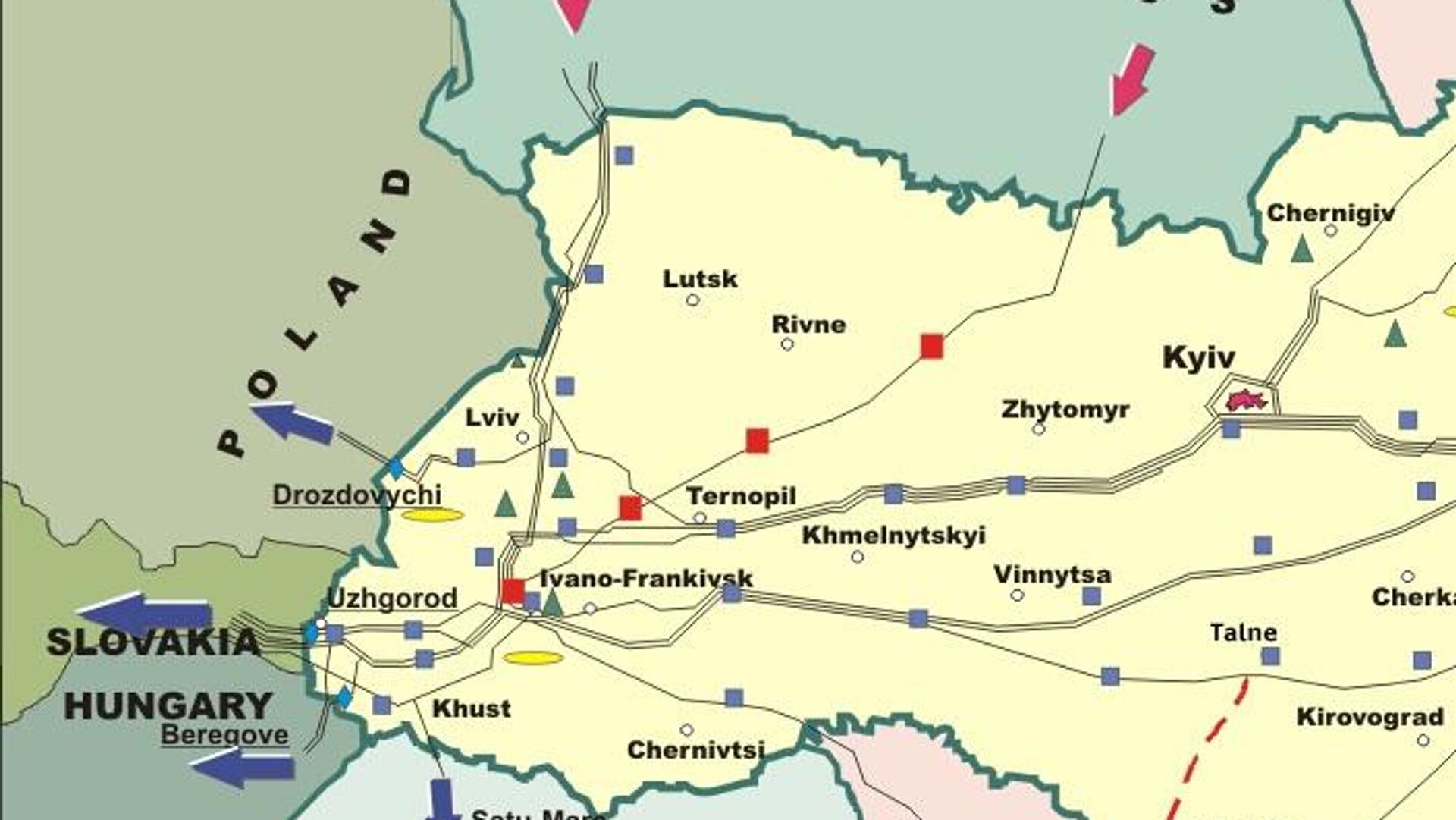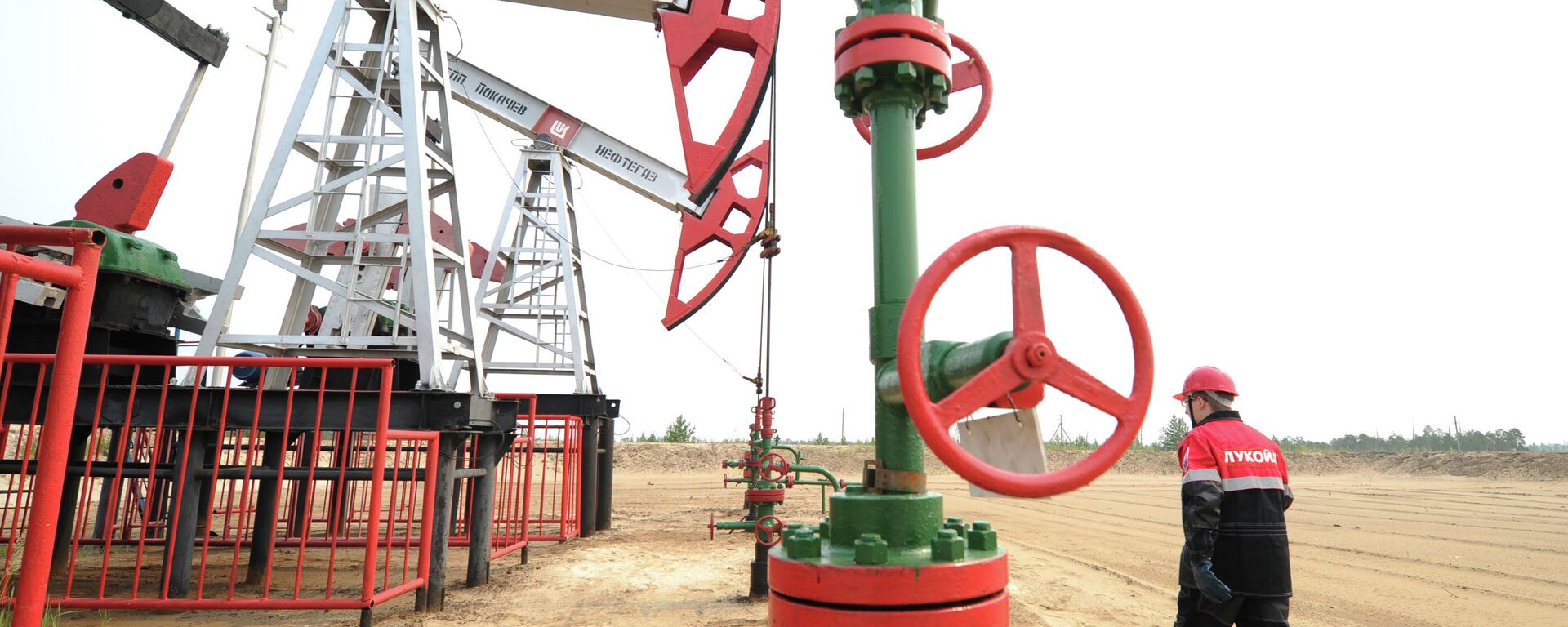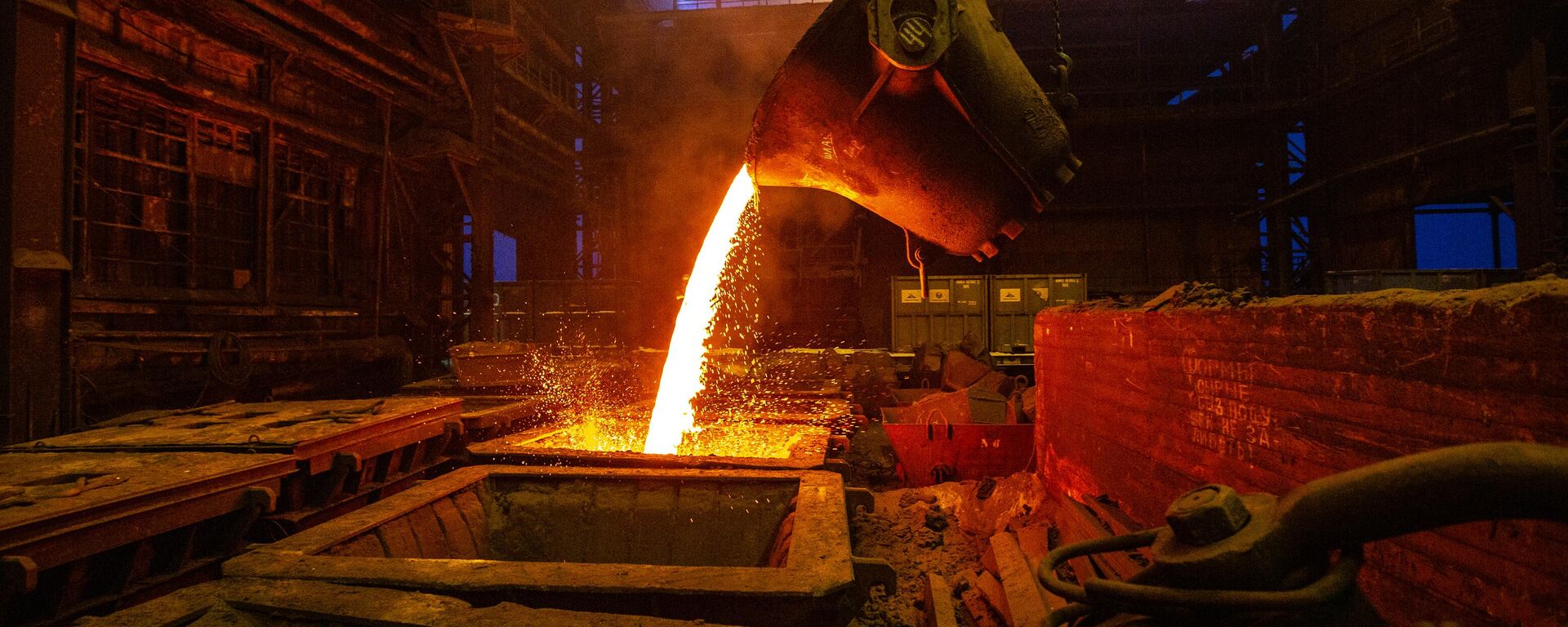https://sputnikglobe.com/20241008/kievs-gaseous-threats-to-scrap-gas-transit-deal-with-russia-betray-lack-of-alternatives-1120475214.html
Ukraine’s Gaseous Threats to Scrap Gas Transit Deal With Russia Betray Lack of Alternatives
Ukraine’s Gaseous Threats to Scrap Gas Transit Deal With Russia Betray Lack of Alternatives
Sputnik International
Ukrainian PM Denis Shmyhal informed his Slovak counterpart Robert Fico that Ukraine has no plans to prolong the agreement with Russia on the transit of natural gas destined for Central Europe.
2024-10-08T16:52+0000
2024-10-08T16:52+0000
2024-10-09T08:49+0000
economy
robert fico
ukraine
russia
european union (eu)
natural gas
gas
energy
pipeline
https://cdn1.img.sputnikglobe.com/img/07e8/0a/08/1120475056_0:54:705:451_1920x0_80_0_0_343e52d48bfe554149cb11e081c495f0.jpg
“The fact that transit will not be extended in the sense of the current contract does not mean it will be excluded in principle. This is a form of Ukraine inflating its self-importance,” Stanislav Mitrakhovich, a senior expert at Russia’s National Energy Security Fund and expert with the Financial university under the government of the Russian Federation, told Sputnik, commenting on Kiev’s announcement that it would not extend the Gazprom-Naftogaz gas transit agreement.But the only other real option Kiev has if it doesn’t want to see its vast Soviet-era pipeline infrastructure fall idle is to import gas from the EU – which makes no sense, given Ukraine’s economic and security predicament, and the unenviable state of its transportation and distribution systems, Mitrakhovich said.In the latter case, “the Ukrainian side is still there, but the customer is no longer Russian companies selling oil in Europe, but European companies, which get the rights to this oil the moment it crosses the border,” Mitrakhovich explained.Simulacra and Simulation in the Energy SectorAs for Prime Minister Shmyhal's talk Monday about creating a Baumgarten, Austria-style “Eastern European energy hub,” this too is just an attempt by authorities in Kiev to inflate their self-importance, and “makes no economic sense” without Russian gas, and given the alternatives that are available, the observer believes.With that said, Mitrakhovich doesn’t rule out Kiev’s European donors shelling out some cash to “simulate the appearance of a hub” for political reasons. If that occurs, it would be more of a “news event than the creation of a real trading platform in which Austrian, Hungarian and Slovak companies would be interested in,” the observer said.
https://sputnikglobe.com/20240825/quite-realistic-scheme-hungary-found-way-to-resume-russian-pipeline-oil-deliveries-1119900663.html
https://sputnikglobe.com/20240912/russian-force-majeure-on-resource-exports-could-clobber-western-economies-heres-why-1120125698.html
ukraine
russia
Sputnik International
feedback@sputniknews.com
+74956456601
MIA „Rossiya Segodnya“
2024
News
en_EN
Sputnik International
feedback@sputniknews.com
+74956456601
MIA „Rossiya Segodnya“
Sputnik International
feedback@sputniknews.com
+74956456601
MIA „Rossiya Segodnya“
does ukraine have alternatives to russian natural gas, what's behind russia-ukraine gas dispute, is russia still transiting gas through ukraine
does ukraine have alternatives to russian natural gas, what's behind russia-ukraine gas dispute, is russia still transiting gas through ukraine
Ukraine’s Gaseous Threats to Scrap Gas Transit Deal With Russia Betray Lack of Alternatives
16:52 GMT 08.10.2024 (Updated: 08:49 GMT 09.10.2024) Ukrainian Prime Minister Denis Shmyhal informed his Slovak counterpart Robert Fico on Monday that Ukraine has no plans to prolong the agreement with Russia on the transit of natural gas destined for Central Europe after it expires at the end of the current year. Sputnik asked a leading Russian energy expert what's really behind Kiev's bluster.
“The fact that transit will not be extended in the sense of the current contract does not mean it will be excluded in principle. This is a form of Ukraine inflating its self-importance,”
Stanislav Mitrakhovich, a senior expert at Russia’s National Energy Security Fund and expert with the Financial university under the government of the Russian Federation, told Sputnik, commenting on Kiev’s
announcement that it would not extend the Gazprom-Naftogaz gas transit agreement.
Fico said last week that Bratislava was strongly interested in prolonging existing agreements on the transit of Russian gas and oil via Ukraine heading to Slovakia. The landlocked Central European nation relies on Russian natural gas for about 20% of its energy mix.
But the only other real option Kiev has if it doesn’t want to see its vast Soviet-era pipeline infrastructure fall idle is to import gas from the EU – which makes no sense, given Ukraine’s economic and security predicament, and the unenviable state of its transportation and distribution systems, Mitrakhovich said.
“Therefore, there’s more than a 90% probability that transit will continue. The current contract will not be extended, but another one will be concluded involving the purchase of Russian gas on the Russian-Ukrainian border,” the analyst said, noting that a similar scheme has already been implemented on oil deliveries via the Druzhba oil pipeline.
In the latter case, “the Ukrainian side is still there, but the customer is no longer Russian companies selling oil in Europe, but European companies, which get the rights to this oil the moment it crosses the border,” Mitrakhovich explained.
Simulacra and Simulation in the Energy Sector
As for Prime Minister Shmyhal's talk Monday about creating a
Baumgarten, Austria-style “Eastern European energy hub,” this too is just an attempt by authorities in Kiev to inflate their self-importance, and “makes no economic sense” without Russian gas, and given the alternatives that are available, the observer believes.
The same applies to proposals to pump Azerbaijani gas through Ukraine, which is impossible as a matter of physics, according to Mitrakhovich, who pointed out that Baku simply does not have the volumes to fill Ukrainian infrastructure, sending the existing natural gas output which it doesn't consume internally to Europe via Georgia and Turkiye-based pipelines.
With that said, Mitrakhovich doesn’t rule out Kiev’s European donors shelling out some cash to “simulate the appearance of a hub” for political reasons. If that occurs, it would be more of a “news event than the creation of a real trading platform in which Austrian, Hungarian and Slovak companies would be interested in,” the observer said.






